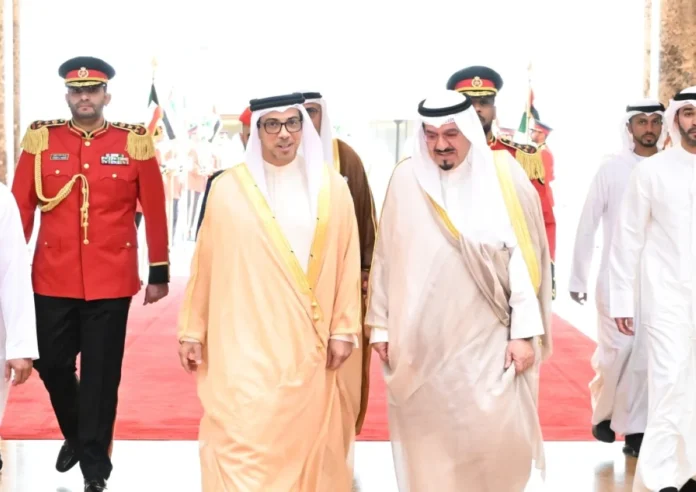In a landmark ceremony at Bayan Palace, Kuwait and the United Arab Emirates solidified their Gulf strategic partnership by signing twelve memorandums of understanding (MoUs) across critical sectors. The signing occurred during UAE Vice President Sheikh Mansour bin Zayed Al Nahyan’s official visit, witnessed by Kuwaiti Prime Minister Sheikh Ahmad Al-Abdullah Al-Sabah.
Expanding Bilateral Cooperation
The agreements demonstrate both nations’ commitment to deepening collaboration in:
- Energy & Infrastructure: Including oil/gas cooperation and road transport development
- Security & Justice: Featuring anti-human trafficking measures and data protection
- Social Development: Covering education, healthcare and community services
- Economic Growth: Promoting direct investments and industrial/technology exchange
“This visit reflects our shared vision for regional prosperity,” stated Kuwait’s Foreign Minister Abdullah Al-Yahya during the signing ceremony.
Key Agreements Signed
- Diplomatic Training: Anwar Gargash Diplomatic Academy (UAE) partnered with Kuwait’s Diplomatic Institute
- Energy Collaboration: Joint initiatives in oil, gas and renewable energy sectors
- Transport Development: Road infrastructure and land transport cooperation
- Anti-Trafficking Measures: Enhanced judicial cooperation to combat human trafficking
UAE Energy Minister Suhail Al-Mazrouei signed three separate MoUs, highlighting the energy sector’s importance in this Gulf strategic partnership.
Focus on Human Development
The social sector agreements included:
- Education cooperation between both nations’ ministries
- Healthcare knowledge exchange and joint training programs
- Community development initiatives for families and children
“These agreements create frameworks for tangible benefits to our citizens,” noted UAE Minister of Community Development Shamma Al-Mazrouei.
The economic MoU on direct investment promotion aims to facilitate cross-border business growth. Meanwhile, the data protection agreement establishes security protocols for shared government projects.
This comprehensive Gulf strategic partnership upgrade comes as both nations celebrate over 60 years of diplomatic relations, with bilateral trade exceeding $20 billion annually.


